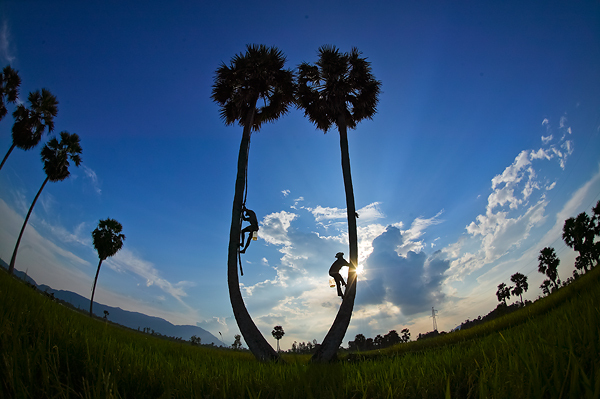
| Viet Kieu investors can be more successful in their business in the homeland | |
Viet Kieu (overseas Vietnamese) have set up 3500 businesses in Vietnam which have the total investment capital of eight billion dollars. However, the capital they have invested in Vietnam is just a small part of their financial capability. Despite the considerable achievements in the retail, finance investment and real estate fields, Viet Kieu’s investment still does not have influences to the national economy and cannot serve as the motivating power for the economy to develop. Than Trong Phuc, director of DFJ VinaCapital (DFJV), when talking about Viet Kieu’s investment in Vietnam, commented that the number of investment projects remains modest, while the quality is below the expectations. Viet Kieu are now the big shareholders of many famous conglomerates in different business fields, such as Techcombank, VP Bank, (banking), Vingroup (real estate), Masan (consumer goods), or Melinh Plaza (retail), Furama (resort) and Air Mekong (air carrier). Vingroup is one of the most famous Viet Kieu invested groups, whose name is associated with its owner – Pham Nhat Vuong. Vuong, who owns the well known Technocom brand in Ukraine, has been very successful with his real estate projects in Vietnam kicked off since 2000s, including Vincom tower in Hanoi and HCM City, Vinpearl in Nha Trang City, Villas-Vinpearl Luxury Da Nang, and the lately Vinmec hospital project in Hanoi. In 2011, Vuong was recognised as the Vietnamese richest stock millionaire. Dr Alan Phan, President of Viasa, a small investment fund with the capital of 80-90 million dollars, said he would continue plan to invest in Vietnam. In fact, he has invested 1.2 million dollars in a business in Vietnam, but he has not succeeded. "I will continue making investment there, of course, when all the barriers are removed,” he said on Dau tu. Viet Kieu has been not only bringing capital, but also intelligence to the homeland, as said Morita Nguyen, Business director, Member of the Board of directors of Lixil Inax Vietnam. In 1997, when Japanese Inax Group (now Lixil Group) was granted the license to set up a sanitary ware factory in Vietnam, Morita returned to Vietnam to work there. Over the last 15 years, the number of Lixil’s factories in Vietnam has increased from one to seven, not including the factories making supporting parts. Morita is believed to be the person, who plays an important role in the decisions of the Japanese group to carry out investment projects in many localities in Vietnam. Most recently, the group has approved the plan to develop a 441 million dollar factory in Dong Nai province, expected to kick off in November 2012. As such, Morita has been serving as the bridge that connects foreign investors and the Vietnamese market. And Than Trong Phuc, a Viet Kieu in the US, has also been acting as a bridge. In 2009, the information that Than Trong Phuc left Intel Vietnam stirred up the public, because Phuc is believed to be the person credited with bringing Intel to Vietnam. The decision of Intel, the world’s biggest chipset manufacturer, to invest one billion dollars in Vietnam is believed to bring a new high hope to Vietnam high-tech industries and the national economy. It is believed to help attract more hi-tech investors to Vietnam. A new story about Viet Kieu’s investment has been related recently by Vo Quang Hue, general director of Robert Bosch Vietnam. If Hue had not taken the post of the CEO of the company, Bosch would have still arrived in Vietnam, but it would not have gained such a big success only after four years of establishment. Hue reportedly resigned from a good position at BMW, one of the leading groups in the world, to take the post of CEO of Bosh Vietnam, because he wants to devote himself to the country. The company has decided to raise the investment capital of its project to 322 million dollars by 2015, and once again, Hue would play a big role in the implementation of the plan. | |
| Vietnamnet |
